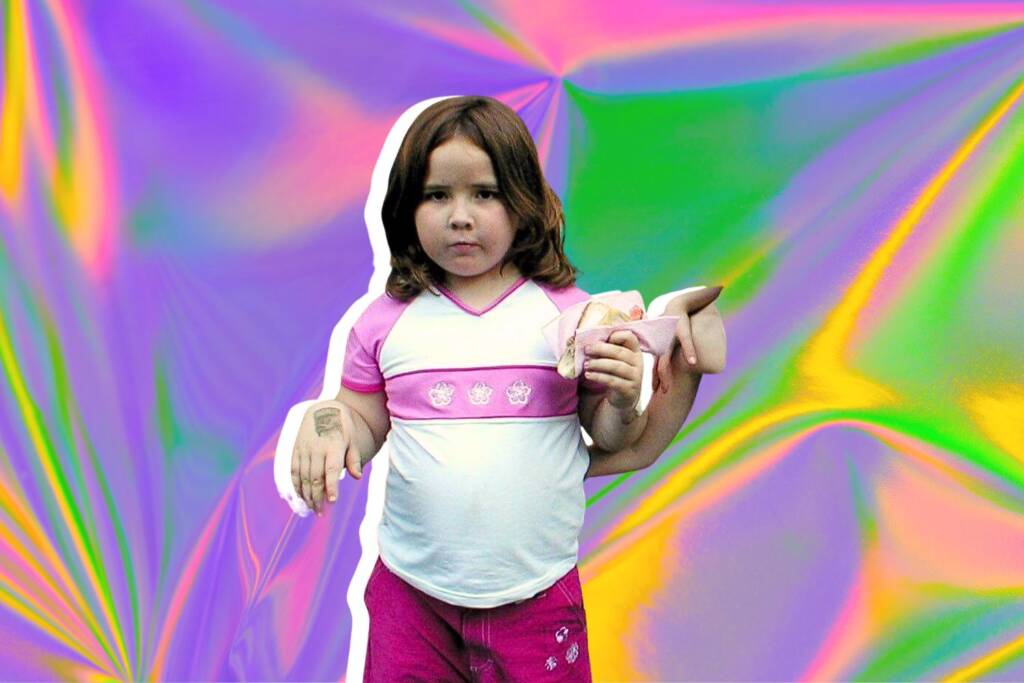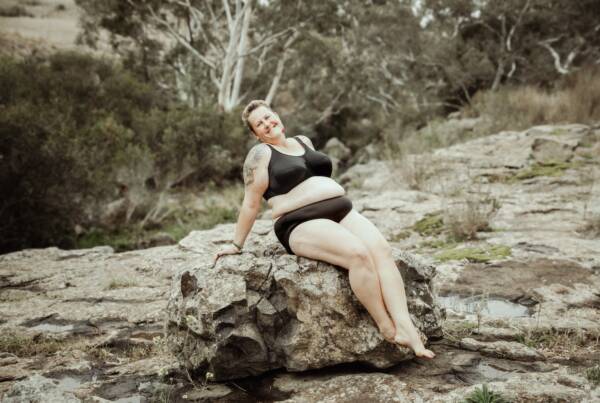Words by Evie Gardiner
 I was in primary school when I first started noticing my body didn’t look the same as my peers’. From the age of five, the seeds were planted that my body was different. I vividly remember older kids at my school pointing at my stomach and asking if I was pregnant. They laughed and snickered. I didn’t fully understand what they meant at the time, but I knew enough to feel shame.
I was in primary school when I first started noticing my body didn’t look the same as my peers’. From the age of five, the seeds were planted that my body was different. I vividly remember older kids at my school pointing at my stomach and asking if I was pregnant. They laughed and snickered. I didn’t fully understand what they meant at the time, but I knew enough to feel shame.
I spent my entire school years being treated differently because of my body and appearance. I was excluded from certain events and always picked last for sports teams. I stopped swimming, even though I loved it and was good at it. I didn’t want to be seen in a swimsuit. Instead of just enjoying being a kid, I spent my formative years criticising how I looked.
The recent Cost of Appearance Ideals report commissioned by the Butterfly Foundation highlights the significant social and economic toll of appearance ideals. It illustrates the wide-reaching impacts of these ideals and the discrimination that people face for not living up to them. My experience is just one of many—so many of us struggle to merely exist in a world where we are constantly told our worth is tied to our appearance, an appearance that must meet unrealistic standards. These ideals have shaped my self-worth and how I show up in the world. I have faced, and continue to face, weight-based discrimination in my everyday life. It has shown up in my schooling, in the workplace, and in routine activities. I have experienced weight stigma in doctor’s offices, which has led to worse health outcomes, and I have avoided seeking medical care for fear of being judged. Weight-based discrimination is not just a personal struggle—it is a systemic injustice that affects our health, our opportunities, and how we navigate the world.
The Butterfly Foundation’s report found that appearance ideals, through the social and economic impacts of weight-based discrimination, come at a staggering cost. These ideals fuel body dissatisfaction, which is linked to depression, anxiety, and eating disorders. They create environments where people—especially women, non-binary people, people of colour, and higher-weight individuals—are taught that their worth is conditional upon meeting these narrow ideals.
The pursuit of these appearance ideals, often at the expense of health and well-being, is driven by industries that profit from our insecurities. From diet culture to the wellness industry, we are constantly being sold the message that our bodies are projects needing investment and improvement. The Appearance Ideals report makes clear that these messages have real consequences, shaping how people get to experience the world.
I am privileged to have accessed support and resources that help me reject these ideals—but I know this is not the case for everyone. And some days are easier than others. It is exhausting to constantly fight against a system that tells you that you’re not good enough. The truth? It will never be enough. Appearance ideals will continue to shift, keeping people in a perpetual cycle of dissatisfaction.
To truly promote health and well-being, we need to shift toward an inclusive society—one that prioritizes dignity, access, and equity for all. We need to challenge policies and practices that reinforce these harmful ideals, from weight-centric health to media that glorifies thinness and unattainable beauty standards. We need to celebrate body diversity—not as an afterthought, but as an essential truth.
My younger self deserved to just grow up and enjoy life, without constantly scrutinising how she looked. We all deserve to exist without feeling like we need to change ourselves to be accepted. The next generation, and the generations after that, deserve better. If we are serious about improving mental and physical health, we must dismantle appearance ideals. This starts with continued awareness, as highlighted in the Butterfly Foundation’s report, but it cannot end there. We must demand more—more respect, more inclusion, more representation. A world where all bodies and appearances are seen as worthy, exactly as they are.






